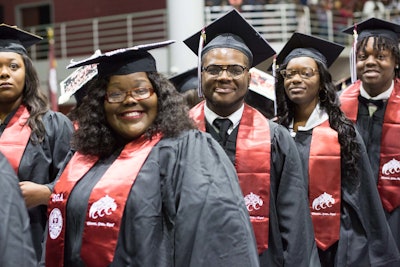 Coahoma Community College graduates
Coahoma Community College graduates
“These funds were reserved for institutions with the greatest unmet needs to ensure that they could stay open and keep students enrolled to get their degrees,” said First Lady Dr. Jill Biden, who is also a community college professor, during a Wednesday press conference on the news. “Today, I am thrilled to announce the nearly 250 winners of these funds, including over 100 community colleges.”
In March 2021, President Biden signed the American Rescue Plan, which provided almost $40 billion in relief funds to colleges and universities to help students impacted by the pandemic.
Almost 90% of this most recent round of funds will go to Historically Black Colleges and Universities (HBCUs), minority serving institutions (MSIs), community colleges, rural institutions, and institutions that serve large populations of low-income students.
“As a minority-serving institution, we understand the challenges that many of our students face, from balancing a full-time job to food insecurity to housing,” said Dr. Donald Generals, president of the Community College of Philadelphia, one of the recent grant awardees, at the press conference. “For that reason, we are pleased to know that colleges like ours can use some federal funds to directly support students.”
The majority of institutions that get these funds are required to distribute about half of all grants directly to students with the greatest need, according to ED. This requirement aims to provide more support for students grappling with housing instability, tuition costs, food insecurity, and other basic needs.
Dr. Valmadge Towner, president of Coahoma Community College, an HBCU in Mississippi, also spoke at the conference as the institution was another one of the most recent grant recipients.
Towner noted that Coahoma used prior HEERF money to tackle a range of needs, including providing hotspots for students with limited internet access, helping them take their classes online. The additional support, he said, will be just as critical.
“This is the Biden-Harris administration’s mission,” said U.S. Secretary of Education Dr. Miguel Cardona at the press conference. “A higher education that is more equitable and more inclusive than ever before.”
Rebecca Kelliher can be reached at [email protected].
















